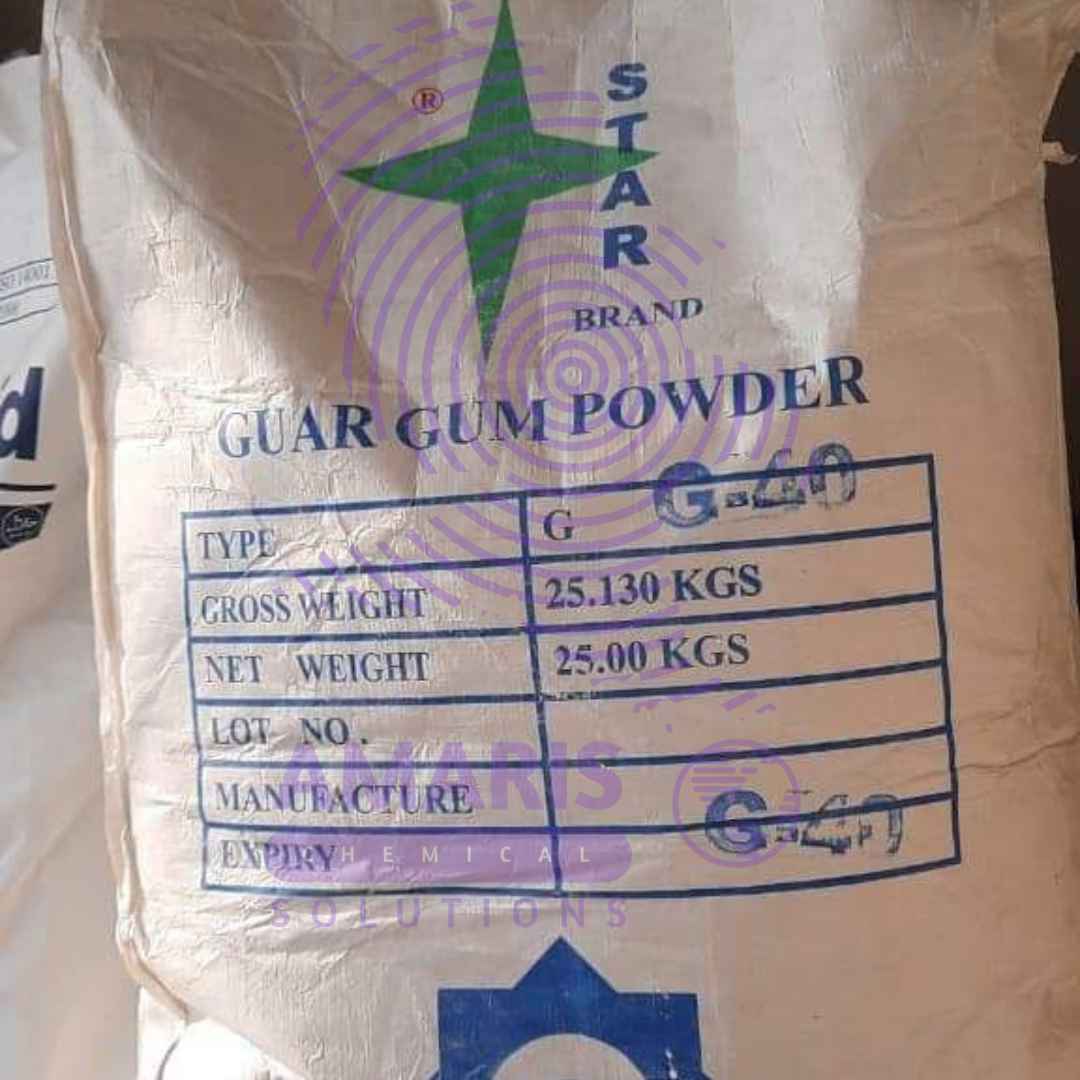COSMETIC RAW MATERIALS, FOOD & PHARMACEUTICALS PROCESSING CHEMICALS, INDUSTRIAL CHEMICALS
Guar gum 25kg
Whatsapp Order
Guar gum is a natural, water-soluble polysaccharide extracted from the seeds of the guar plant (Cyamopsis tetragonoloba), which is grown mainly in India and Pakistan. It is commonly used as a thickener, stabilizer, and emulsifier in a wide range of food and non-food products, including baked goods, dairy products, sauces, dressings, beverages, personal care products, and industrial applications. Guar gum has excellent viscosity and water-binding properties, and it can improve the texture, mouthfeel, and shelf life of many products
Compare
Guar gum has a variety of common uses across different industries, including:
- Food Industry: Guar gum is widely used as a thickener, emulsifier, stabilizer, and binding agent in a variety of food products such as baked goods, dairy products, sauces, dressings, beverages, and confectionery. It can improve the texture, viscosity, mouthfeel, and stability of food products.
- Oil and Gas Industry: Guar gum is used as a thickener and viscosifier in hydraulic fracturing fluids to enhance the viscosity of the fluid and carry proppant into fractures created in the rock formation.
- Paper and Textile Industry: Guar gum is used as a sizing agent in the textile and paper industry, where it provides better print quality, improved ink receptivity, and increased paper strength.
- Pharmaceutical Industry: Guar gum is used in the pharmaceutical industry as a binder, disintegrant, and sustained-release agent in tablet formulations, as well as a thickener and stabilizer in liquid formulations.
- Personal Care Industry: Guar gum is used in personal care products such as lotions, creams, shampoos, and conditioners as a thickener and emulsifier to improve their texture and stability.





